Are you looking for Wheelie bin cleaning? It is important to keep your wheelie bins clean and sanitised to avoid smells and odours and more importantly protect you from the germs and diseases that can be passed on from touching areas that flies and rodents may have visited on your bin. It is important that your bins are cleaned regularly to avoid the build-up of waste and bad smells.
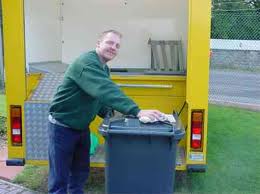
Emptying Schedule
Bins should be emptied on a regular basis, depending on which provider you have will determine how often the bin collection happens but most councils now offer only fortnightly collections on your general waste bin. The frequency of emptying your wheelie bin will have an impact on the necessity of regular bin cleaning.
If you have a bin collection every two weeks then this means that your bins will fill up much quicker and it is therefore important to clean out your bins more regularly than if you have a bin collection every week where the food and waste is not sitting there and decomposing for a loger period.
Cleaning Your Bin
The best way to clean a wheelie bin is by using a mixture of hot water and bleach, you can also add some washing up liquid to the solution if it is really bad.
It is important not to use harsh chemicals on your bin as this will make the plastic more prone to cracks which could potentially be dangerous for any animals that may live in or around your bins.
Many people struggle to keep their bin clean and smell free, this is due to the fact that some bins can be very hard to access and cleaning around the rim on a wheelie bin may cause it to get dirty quickly.
It is important for your safety when you are trying to clean your bin as well as preventing unnecessary smells from your bin.
Remember that if you have a smelly wheelie bin then this will attract flies and insects which can be very dangerous as they may carry disease, so it is important to clean the area around where bins are kept in order to avoid these issues and your other bins becoming contaminated too.
When cleaning any areas near or around a wheelie bin, ensure that you wear gloves and protective clothing as some diseases can be passed on by touching certain areas.
Flies are attracted to odorous places so keeping your bins clean will help avoid the risk of flies landing or laying eggs in your waste bins, this could potentially cause maggots which carry disease such as E-coli to be present in your bin.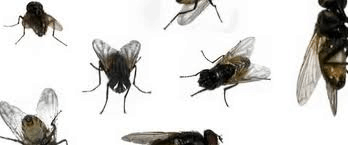
Maggots can also lay eggs on any waste that has not been disposed of properly and this could cause bad smells but it is also important for the safety of people who may come into contact with these areas around bins.
If you are having problems with flies or maggots then there are ways that you can reduce the risk of this happening to your bin, you can place a small amount of bleach in your bin which will help prevent maggots and flies laying eggs on surfaces.
If you are having issues with smells or insects around bins then it is important that you contact an expert company who will be able to clean up any messes made by maggots or flies. You can check our areas covered , call us on 07776 134023 or email mark@wheeliebincleaningservice.com
Recycling
There should be a separate bin for recycling as well as food waste to avoid contamination from non-organic material such as glass and plastic.
If you have a large amount of recycling to dispose of then it is important that you check which items can be recycled.
Pizza boxes are not recyclable and should therefore only be disposed of in the general waste bin, with cardboard being able to go into both bins. Paper plates are also non-recyclable as they may contain food particles on them.
Bad smells also attract rodents which can cause a number of issues and the potential for them to chew through bin bags is also increased.
Rodents are commonly known as rats but mice can be just as harmful if they decide to build an area around your bins, it is important that you contact pest control companies who will be able to inspect areas where rodents may have been present.
It is important to keep your wheelie bin clean so that you are able to avoid any issues with smells or insects which could cause damage.
Keeping your bins clean will also help prevent rodents from building an area around the wheelie bins which can be dangerous for animals and people living nearby, if you have a problem with pests such as flies or maggots then it is important that you contact a pest control company who will be able to clean up any messes.
Recycling is important and it is important to ensure that you know what items can be recycled in your area.
You should always wear gloves when cleaning bins and protective clothing as some diseases can be passed on by touching certain areas. If you are having problems with smells or insects around bins then it is important that you contact an expert company who will be able to inspect any messes.
Bad smells also attract rodents which can cause a number of issues and the potential for them to chew through bin bags is also increased. Keeping your wheelie bin clean will help prevent this happening, you should always wear gloves when cleaning bins and protective clothing as some diseases can be passed on by touching certain areas if they are dirty.
There are some health risks associated with cleaning wheelie bins and not everyone will feel comfortable doing this on their own, especially when there is the fear of having items falling or spilling on them while they work. This can be avoided by having a proper system in place for safely collecting all your used items and disposing of them accordingly.
You should also make sure that you have protective clothing on such as rubber gloves, goggles or glasses to avoid any accidental splashes from the bin contents spilling onto you while working. After cleaning out bins it is important to disinfect surfaces where possible with bleach.
If you find that there is a build-up of waste still in the bin, the best way to avoid smells and odours from developing in your household or business location would be to remove full bags before they reach capacity. There are also products available for purchase that are designed to help break down waste which helps reduce the smells and odours.
Maggots can be found in bins if there is a build up of food particles or other organic material, they eat this type of material as their source of nutrition. This will not cause any harm but it may result in an unpleasant smell around your bin area.
Mould, dust and dirt can accumulate on the outside of your bin which is why it is important to regularly clean them with a disinfectant cleaner or anti-bacterial spray. This will help reduce the risk of germs being spread from touching surfaces that have been in contact with waste material. It may be necessary to remove this debris.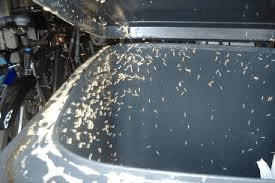
Flies are attracted to waste bins because food and other organic matter that has fallen on the ground near your bin may be an attractive source of nutrition for them. This can cause maggots which will result in a smelly environment due to their feeding activities around the bin area.
It is important to keep wheelie bins clean as this keeps the surrounding areas of your bin collection point clean and it can also help to reduce the risk from any diseases or illnesses that could be caught by touching surfaces of your bins.
Potential Diseases
Diseases such as Listeria, Hepatitis A, E-Coli and Salmonella are all possible diseases that could be caught from an unsanitary environment on your bins which can result in high levels of sickness.
Listeria
Listeria is a bacterium that causes Listeriosis, an infection of the Lymphatic system. It has been linked to many illnesses leading to Meningitis or Septicaemia, which are both potentially fatal diseases.
Listeriosis affects the elderly, pregnant women and people with low immunity. Listeria is Listeria monocytogenes, which are rod-shaped bacteria found in soil, water, vegetation and the faeces of many animals.
It can be passed between people via infected blood or through a Listeria infection in the mother, which can lead to Listeriosis to the unborn baby.
In healthy adults Listeriosis has flu-like symptoms that disappear within a few days but sometimes Listeriosis can cause Lymphangitis, which is Listeria infection in the Lymph nodes. 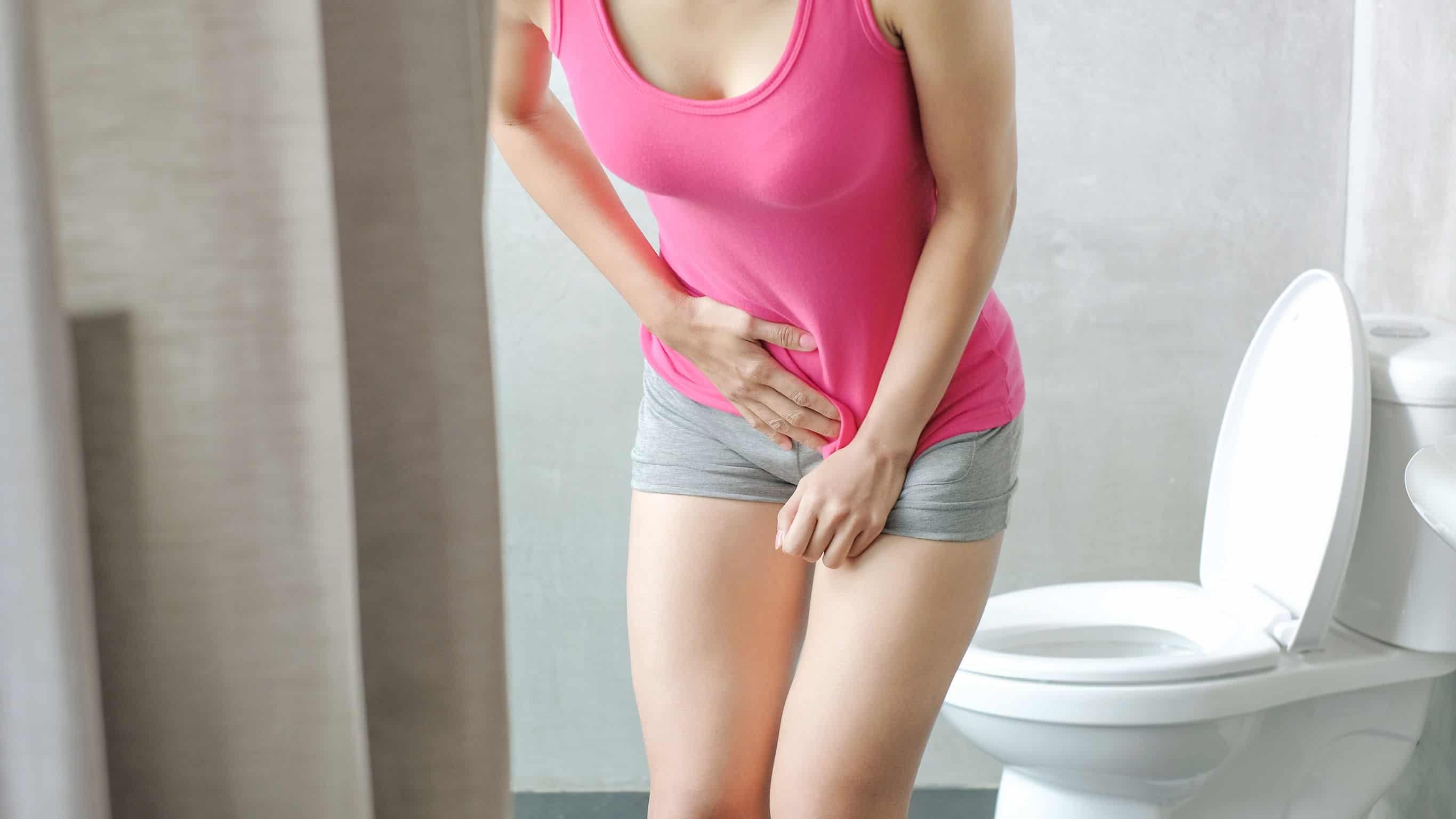
Listeriosis tends to be more dangerous for pregnant women, causing abortion or Listeriosis to the unborn baby. The newborn baby could get infected by eating Listeria during breastfeeding, but if Listeriosis is diagnosed at an early stage and treated soon Listeriosis can be treated successfully.
Hepatitis A
Hepatitis A is a deadly disease that’s been around since the time of the ancient Egyptians, so clearly it can’t be too dangerous right?
Wrong.
This disease is no joke. It kills a lot more people than you would think and there isn’t really much being done to prevent or cure it
Where does Hepatitis A come from?
Hepatitis A can be contracted by ingesting fecal matter or traces of fecal matter that are left on the hands after someone with Hepatitis A has touched a bin with fly or rodent fecal matter on the handles or lid.
How many people get Hepatitis A?
Hepatitis A infects about 71,000 people every year.
How often does Hepatitis A kill people?
Hepatitis A kills about 3000-4000 of those 71,000.
E-Coli
E-Coli is another disease that can be contracted from animal faeces on a bin.
The presence of different strains has been used as evidence of the evolution of E-coli from harmless organisms living in benign conditions to being a serious threat to humans, as the strains have evolved and adapted to their new environment.
E-coli can cause disease by infecting a host directly or through its toxins, which leads to symptoms such as abdominal cramping and diarrhea . E-coli is a member of the family Enterobacteriaceae, which also includes Salmonella species and Shigella .
E-coli can be contracted by consuming contaminated food or water , especially from sources that have been polluted by faeces.
E-coli infections can spread from person to person direct contact through sex or by touching something an E.coli infected person has used, such as a surface, toilet seat or other object.
E-coli can also spread to animals other than humans through contact with faeces. E-coli can be treated effectively with antibiotics, according to Mayo Clinic .
E-coli is one of the most common microbial causes for bacterial diarrhea worldwide.
Salmonella
Salmonella is shed in an infected animal’s feces which means Salmonella Salmonellosis is most commonly spread through contact with feces.
Salmonella Salmonellosis is most often contracted by eating or drinking contaminated food or water, but it can also be acquired by handling animals that carry Salmonella Salmonellosis and then touching your mouth before washing your hands.
If you’re not getting your bin cleaned regularly, it is important you wash your hands every time you go to the bin to put rubbish in.
Bin Smells
 If you have a smelly bin then it is important to act quickly as the quicker you deal with any smells or odours around your bins then less likely they will linger for long time.
If you have a smelly bin then it is important to act quickly as the quicker you deal with any smells or odours around your bins then less likely they will linger for long time.
Wheelie bin cleaning is effective for removing any build up of waste at the bottom of the bin and food debris that may cause bad smells in your bin.
Bins can smell bad because of the build up of organic matter such as food particles, dirt and dust.
If your bin smells bad then you should act quickly to avoid any lingering smells.
Flies & Maggots
The more often bins are emptied will increase the likelihood that it may smell bad due to a build-up of waste if they are not regularly cleaned out.
Flies can be attracted to your bins because of the build up of organic matter.
The more often you clean out your bin, the less risk there is from flies and maggots around it. This can result in a bad smell developing if not dealt with quickly enough.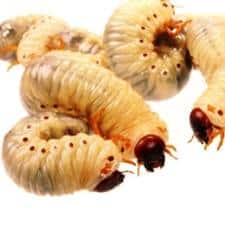
It is important to keep wheelie bins clean as this can help reduce the risk from any diseases or illnesses that could be caught by touching surfaces around your bins. It may also prevent bad smells from developing.
Regular bin cleaning is effective for removing any build up of waste and dirt that may cause bad smells in your bin area.
Dog waste should also be kept separate from the bin and only added once a week. This is because dog waste can carry parasites such as roundworms, eggs of which could contaminate your bin with maggots.
If you have a roast dinner, ensure any chicken carcasses are removed and disposed of before they put your bin out. This is because the raw meat juice could drip onto other waste which will attract flies, causing them to lay their maggots on it or even in it if you leave it for too long.
Cleaning Frequency
People always ask how often should bins be cleaned?
However this does depend on what kind of waste you are putting into the bin. For example, general household waste usually needs to be more frequently than recycling because of food decomposing and potential for attracting insects.
If your bin is beginning to smell unpleasant it may also mean your bag doesn’t fit properly or could need changing entirely as this will allow odours to escape freely. If you are unsure, there’s nothing wrong with simply contacting us .
Rats & Rodents
Cat litter and sanitary products should be wrapped in a bin bag before being placed into the wheelie bin, as these materials tend to leak and can attract flies. Ensure you always tie up your bags securely too, to avoid attracting rats.
Rats like dark places which means that if they find a gap between your wheelie bin and the house, they will squeeze through it to make their home inside. 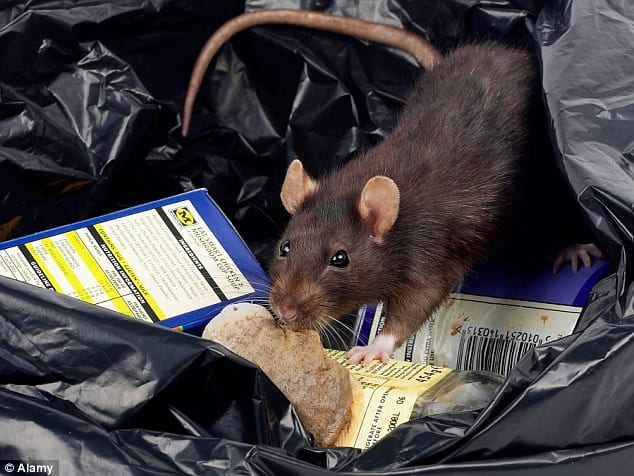
This would be especially unpleasant if you have pets or small children as rats can leave droppings which are harmful to young animals, cause an infection called Leptospirosis in humans (which causes vomiting, diarrhea and nausea) and also bring in fleas and ticks which can carry diseases such as Lyme Disease.
The best way to avoid rats is by ensuring that your wheelie bin is secure around the lid and at the bottom of the bin with bungee cords or adhesive tape. This will prevent any gaps from being formed between bins so pests cannot get inside easily.
However if rats have already made a home inside of your bin, you should contact us immediately as we can help with an inspection and remove the pests safely.
Wheelie Bin Cleaning
Wheelie bin cleaning is important because it reduces the chance of catching a disease from germs lurking in your waste. If you are not confident about how to clean your wheelie bins, please contact us for more information or advice on 07776 134023 or email mark@wheeliebincleaningservice.com
No matter the smell, never leave smelly items in your wheelie bin overnight as this can attract insects and rodents to nest inside.
If you need assistance with deodorising your bins you can see if we cover your area here or contact us today on 07776 134023 or email mark@wheeliebincleaningservice.com
